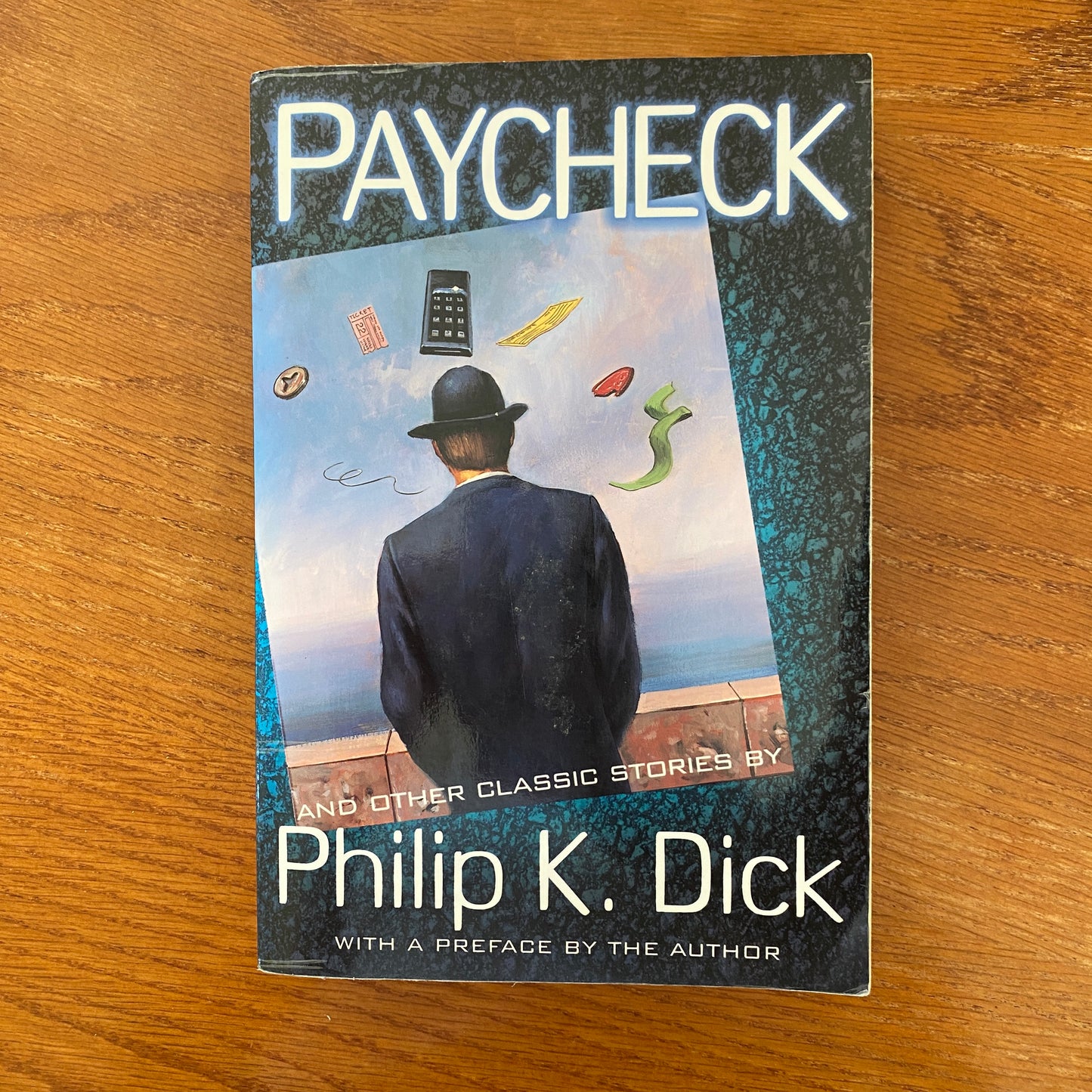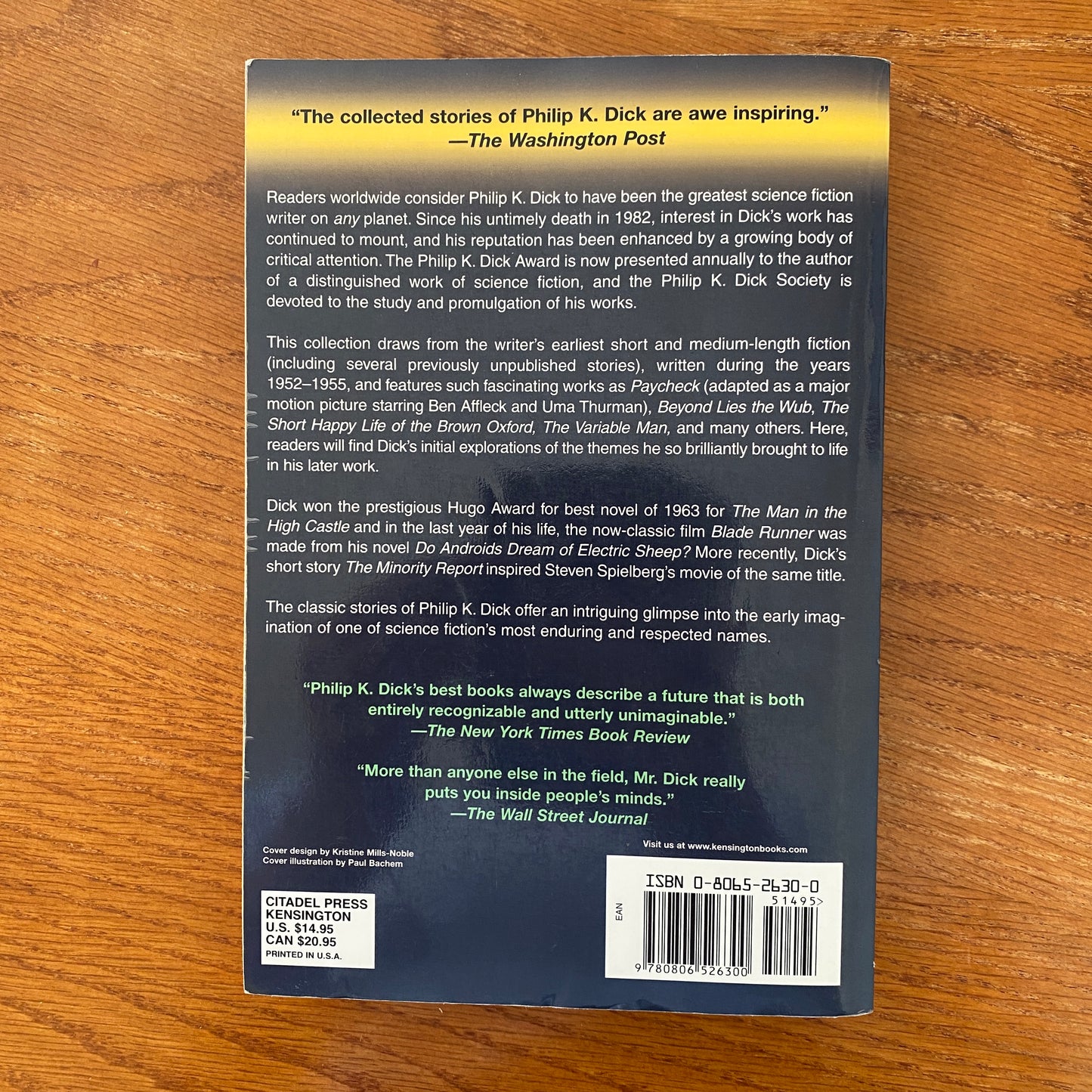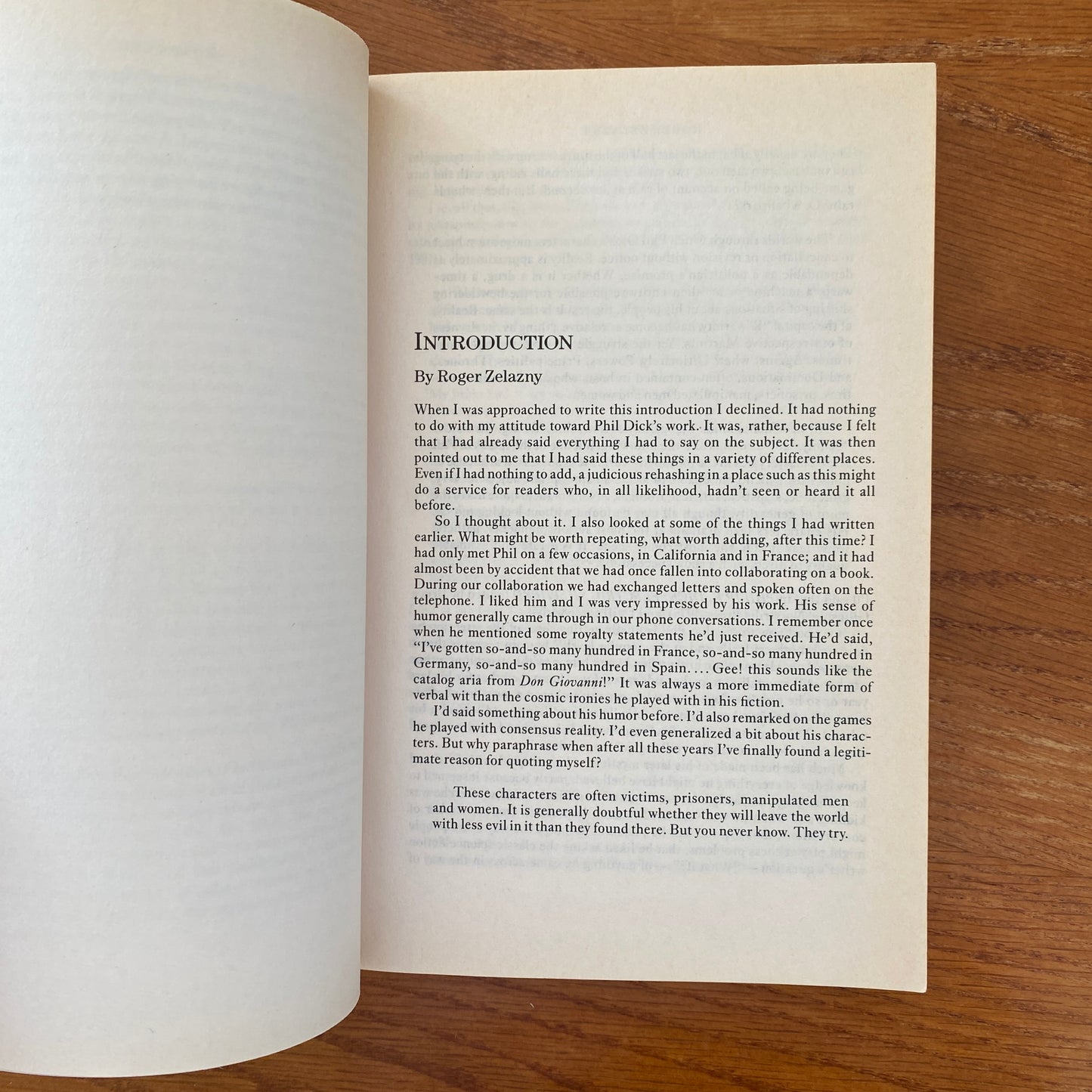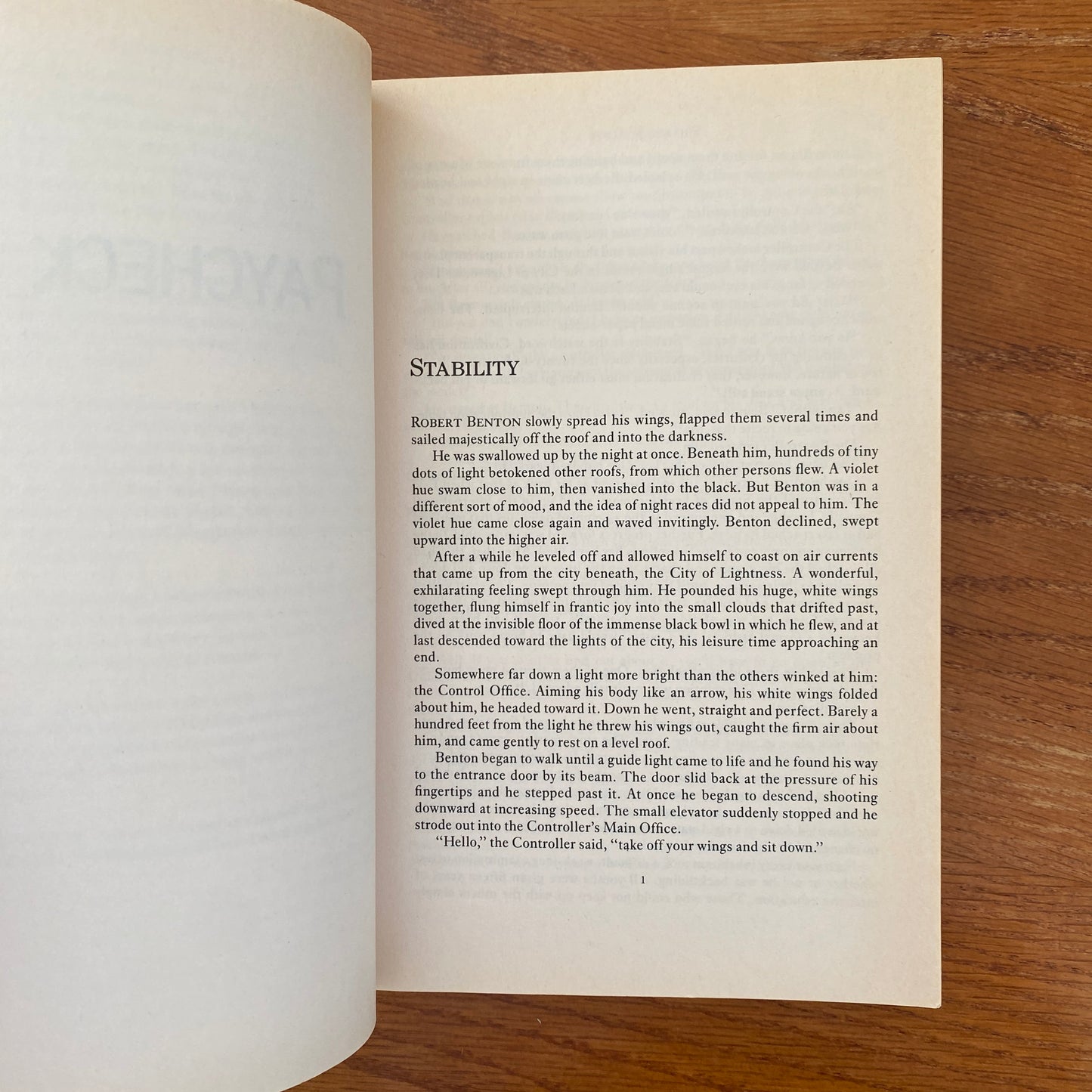1
/
of
4
Rumorbooks
Philip K. Dick - Paycheck
Philip K. Dick - Paycheck
Regular price
$20.00 AUD
Regular price
Sale price
$20.00 AUD
Shipping calculated at checkout.
Quantity
Couldn't load pickup availability
Philip K. Dick's "Paycheck" is a captivating science fiction short story first published in 1953. The narrative revolves around the protagonist, Jennings, an electrical engineer who specializes in reverse engineering technology. In a world where powerful corporations guard their intellectual property fiercely, Jennings' unique skills are in high demand.
The story begins with a seemingly straightforward job: Jennings is hired to work on a top-secret project for Rethrick Construction. However, he soon discovers that his memory of the project will be wiped upon completion, and instead of a monetary payment, he will receive an envelope containing a collection of seemingly random items.
As Jennings embarks on the project, he becomes embroiled in a web of intrigue and danger. When he awakens after his memory has been erased, he must rely on the mysterious items in the envelope to navigate a world where he no longer knows who he can trust.
"Paycheck" is a fast-paced and suspenseful tale that delves into themes of memory, identity, and the consequences of technology. It raises questions about the value of knowledge and the ways in which powerful entities manipulate individuals for their own gain.
Philip K. Dick's narrative style is marked by psychological depth and a sense of paranoia, and "Paycheck" is no exception. The story challenges readers to question the reliability of their own memories and the extent to which their identities are shaped by external forces.
The story's exploration of memory erasure and manipulation would later become a recurring theme in Dick's body of work. It foreshadows his fascination with the malleability of reality and the shifting boundaries between the authentic and the fabricated.
"Paycheck" has also been adapted into a film of the same name, directed by John Woo and starring Ben Affleck. While the film takes liberties with the source material, the core concept of memory manipulation and its consequences remains a central element of both versions.
In summary, Philip K. Dick's "Paycheck" is a gripping and intellectually stimulating science fiction story that challenges readers to contemplate the nature of memory, identity, and the ethical implications of advanced technology. It stands as a testament to Dick's ability to craft engaging narratives that explore the complexities of the human psyche and the ever-evolving relationship between individuals and the technology they create.
The story begins with a seemingly straightforward job: Jennings is hired to work on a top-secret project for Rethrick Construction. However, he soon discovers that his memory of the project will be wiped upon completion, and instead of a monetary payment, he will receive an envelope containing a collection of seemingly random items.
As Jennings embarks on the project, he becomes embroiled in a web of intrigue and danger. When he awakens after his memory has been erased, he must rely on the mysterious items in the envelope to navigate a world where he no longer knows who he can trust.
"Paycheck" is a fast-paced and suspenseful tale that delves into themes of memory, identity, and the consequences of technology. It raises questions about the value of knowledge and the ways in which powerful entities manipulate individuals for their own gain.
Philip K. Dick's narrative style is marked by psychological depth and a sense of paranoia, and "Paycheck" is no exception. The story challenges readers to question the reliability of their own memories and the extent to which their identities are shaped by external forces.
The story's exploration of memory erasure and manipulation would later become a recurring theme in Dick's body of work. It foreshadows his fascination with the malleability of reality and the shifting boundaries between the authentic and the fabricated.
"Paycheck" has also been adapted into a film of the same name, directed by John Woo and starring Ben Affleck. While the film takes liberties with the source material, the core concept of memory manipulation and its consequences remains a central element of both versions.
In summary, Philip K. Dick's "Paycheck" is a gripping and intellectually stimulating science fiction story that challenges readers to contemplate the nature of memory, identity, and the ethical implications of advanced technology. It stands as a testament to Dick's ability to craft engaging narratives that explore the complexities of the human psyche and the ever-evolving relationship between individuals and the technology they create.
Share








